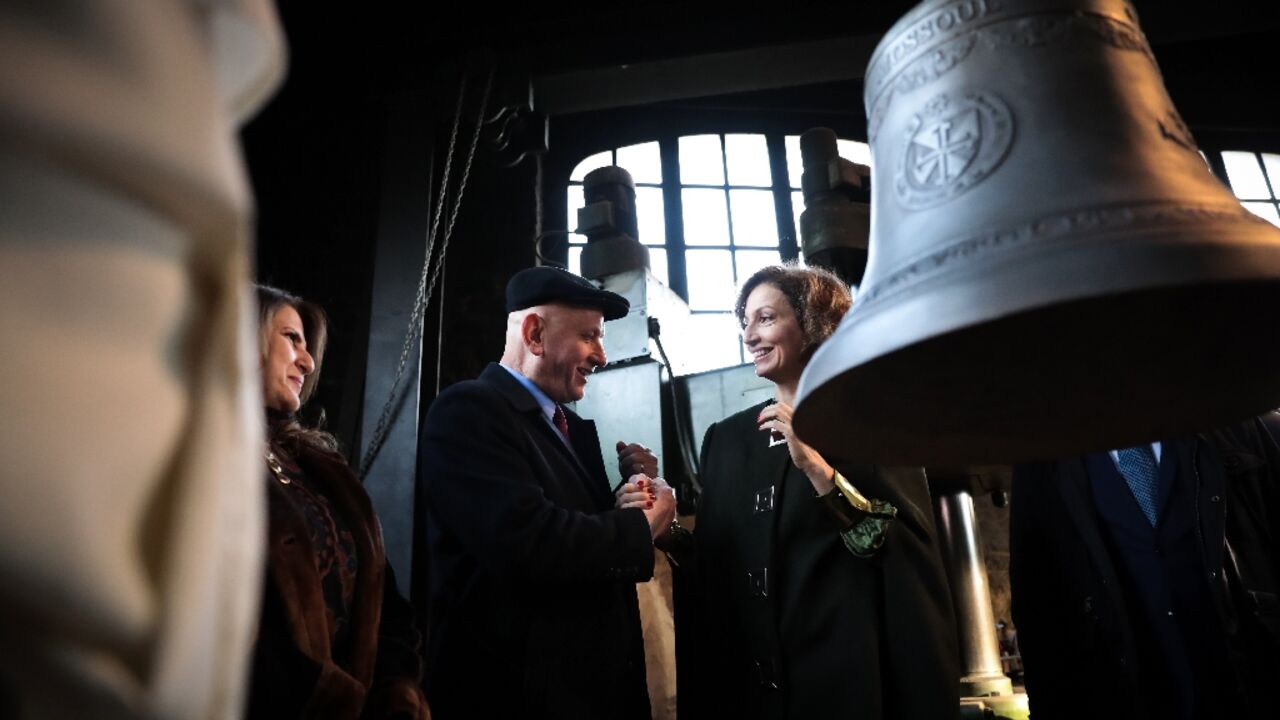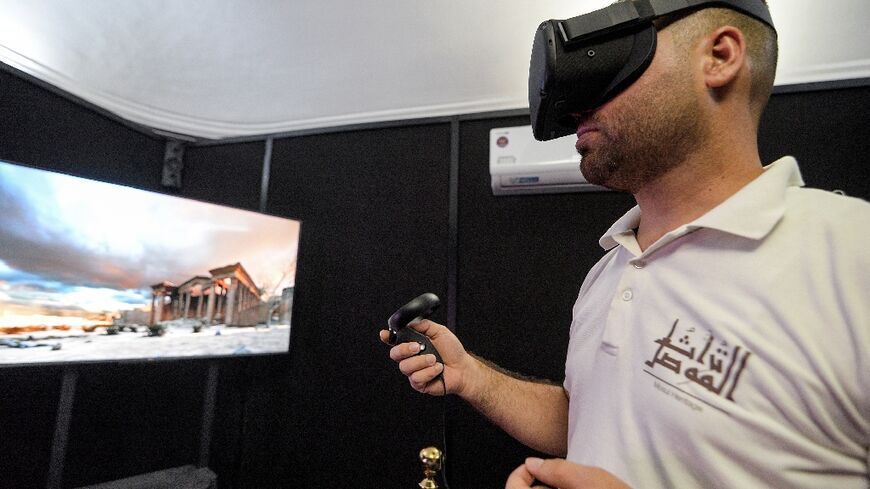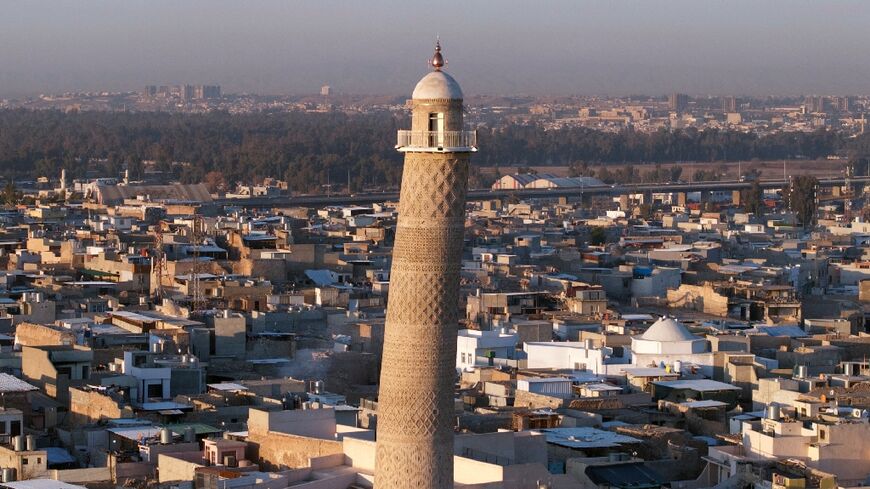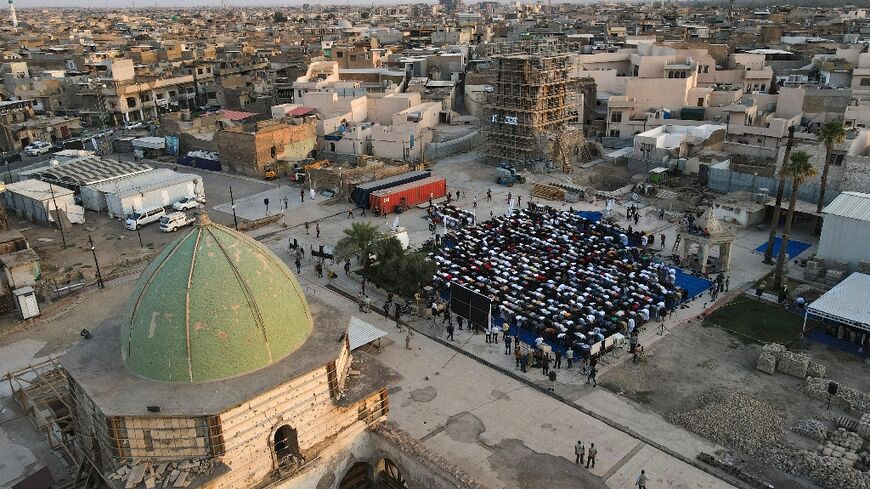In jihadi-ruined Iraqi city, restored church bells signal hope

Where brutal jihadists once ruled in Iraq, church bells rang out on Tuesday, a symbol of hope, reconstruction, and unity.
"They ring for everyone," the UN's cultural chief Audrey Azoulay said on a visit to the northern metropolis of Mosul, Iraq's second city.
Her agency, UNESCO, is rebuilding churches, mosques and other buildings devastated by the Islamic State group's three-year occupation of a city known for its religious and cultural diversity.
"It's a symbol of a return to peace, connection to history but also a symbol of hope for the future," said Azoulay, director-general of the United Nations Educational, Scientific and Cultural Organization.
She spoke on the second day of a visit to demonstrate UNESCO's support for the rebuilding of Iraq, whose rich heritage has been ravaged by conflict over the past 20 years.
Since 2018 UNESCO has raised more than $150 million for projects in Iraq, mostly the reconstruction of Mosul.
IS seized the city as its stronghold before being pushed out in 2017, but the battle to retake it reduced the Old City to rubble.
Under UNESCO's "Revive the Spirit of Mosul" initiative, mosques, churches and century-old homes are being rebuilt.
- The sound of dialogue -
Among the most prominent of the restorations is Our Lady of the Hour convent, where the three church bells newly arrived from France pealed from the bell tower where they have just been installed.
Known in Arabic as Al-Saa, the clock church, it was named for a timepiece given by France in 1880 to recognise the Dominicans' cultural and social work.
Azoulay said the convent provided Iraq's first school for girls and first teachers' college for women. The site also hosted the first printing press in Mesopotamia, she said.
Its three new bronze bells, named after the archangels Gabriel, Michael and Raphael, the heaviest of which weighs 270 kilograms (168 pounds). They were cast at the same French foundry in Normandy which made those at Notre-Dame Cathedral in Paris, said Azoulay, a former French culture minister.
"We are in a place of religion, of culture, of coexistence, of education... very symbolic place," she said.
The walls of the convent church have been restored with "magnificent stone, gilded a little like bread", said Dominican Father Olivier Poquillon.
UNESCO is also restoring Mosul's Al-Nuri mosque and the adjacent landmark minaret nicknamed Al-Hadba or the "hunchback", which dates from the 12th century. They were destroyed during the battle to retake the city from IS. Iraq's army accused IS of planting explosives at the site and blowing it up.
The jihadists' arrival further decimated an Iraqi Christian population which has lived in the region for millenia. Since the 2003 US-led overthrow of Saddam Hussein, Iraq's Christian community has shrunk to about 400,000.
Still, "we are seeing life return to the area," Poquillon said late last month as he supervised installation of the bells which he hopes will regain "a function of dialogue".
In Mosul's Old City, the church bells and the mosque minaret are neighbours and people can hear them both calling their faithful to prayer, he said.








